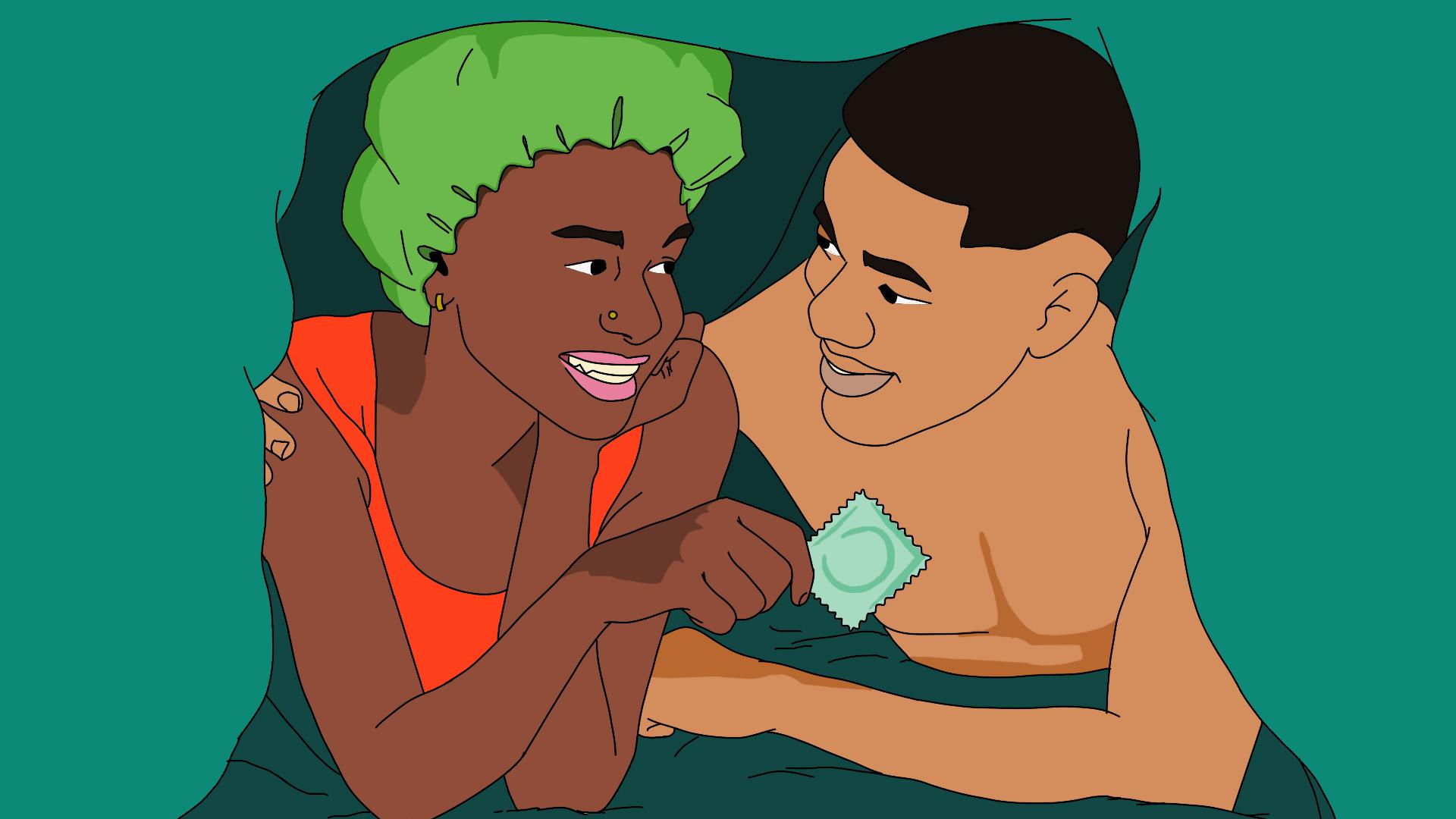🎧 Listen to: Safe Sex

Safe Sex
Safe Sex
Understanding Sexually transmitted infections (STIs)
Sex is a natural part of life, but unsafe sex can expose you to serious health risks. One of the biggest risks is getting a sexually transmitted infection (STI), which is an infection passed from one person to another through sexual contact. This can happen through vaginal, anal, or oral sex, and even through close skin-to-skin contact.
STIs are very common in Africa. According to the world health organization (WHO), Africa has one of the highest rates of STIs in the world. In some countries, about 1 in 4 sexually active people has an STI. Many people don’t even know they have an infection because they don’t show symptoms. This is why safe sex practices are so important.
The good news? STIs are preventable. By taking the right precautions, you can protect yourself, your partner, and your future.
How common are STIs in Africa?
Sexually transmitted infections are a serious health concern in Africa. Here are some key facts:
- HIV/AIDS: Africa accounts for over 67% of the world’s HIV cases. In some areas, up to 10% of adults are living with HIV.
- Syphilis: A study found that about 4% of pregnant women in sub-Saharan Africa tested positive for syphilis, which can cause serious health issues if untreated.
- Gonorrhea and chlamydia: Many young people suffer from these infections without knowing it. They can lead to infertility if left untreated.
This means that safe sex education is not just important—it is necessary for survival.
How to protect yourself before sex?
Before you engage in any sexual activity, take these important steps to protect yourself:
- Talk openly with your partner about sexual health and past infections.
- Get tested together before having sex. Many STIs have no symptoms.
- Avoid sex when under the influence of alcohol or drugs. This can lead to poor decisions.
- Get vaccinated against human papillomavirus (HPV) and hepatitis B (HBV), which are common in Africa.
- Consider PrEP (Pre-Exposure Prophylaxis) if you are at risk of HIV. It is a medication that reduces the chances of getting HIV.
- Use protection every time you have sex.
Safe sexual practices?
The best way to avoid STIs is by using barrier methods during sex. These include:
- Male and female condoms for vaginal or anal sex.
- Dental dams (a thin sheet of latex) for oral sex.
- Gloves for manual stimulation.
Other important hygiene practices include:
- Washing your hands and genitals before and after sex.
- Urinating after sex to help prevent urinary tract infections (UTIs).
How to use a condom correctly?
Using a condom the right way increases its effectiveness. Here’s how to do it properly:
- Check the expiration date before use.
- Ensure the package is sealed (it should have an air bubble when pressed).
- Put it on properly:
- For male condoms: Leave a small space at the tip before rolling it down.
- For female condoms: Insert it inside the vagina before sex.
- Use the right lubricant: Water-based or silicone-based lubricants are best. Do not use oil-based products like Vaseline, as they can break latex condoms.
- Hold onto the condom after ejaculation to prevent spills.
- Dispose of the condom properly. Do not flush it down the toilet.
- Never reuse a condom
Risks of STIs even when using condoms?
Condoms are highly effective but do not offer 100% protection. Some infections can spread through skin-to-skin contact, including:
- Syphilis (which can cause sores on the body)
- Herpes (which causes painful blisters)
- HPV (genital warts)
If you or your partner has herpes, talk to a doctor about suppressive therapy. This can reduce outbreaks and lower the risk of spreading the virus.
Take charge of your sexual health?
Your health is in your hands! Prevention is better than cure. Taking small steps today can save you from serious health problems in the future. Whether you are in a relationship or not, knowing how to practice safe sex is crucial.
- Get tested regularly
- Educate yourself and others
- Use protection
- Talk openly about sexual health
